FBI Director Christopher Wray ‘Quashed’ DOJ Plan to Prosecute Trump Associates’ Role in January 6, Per Report
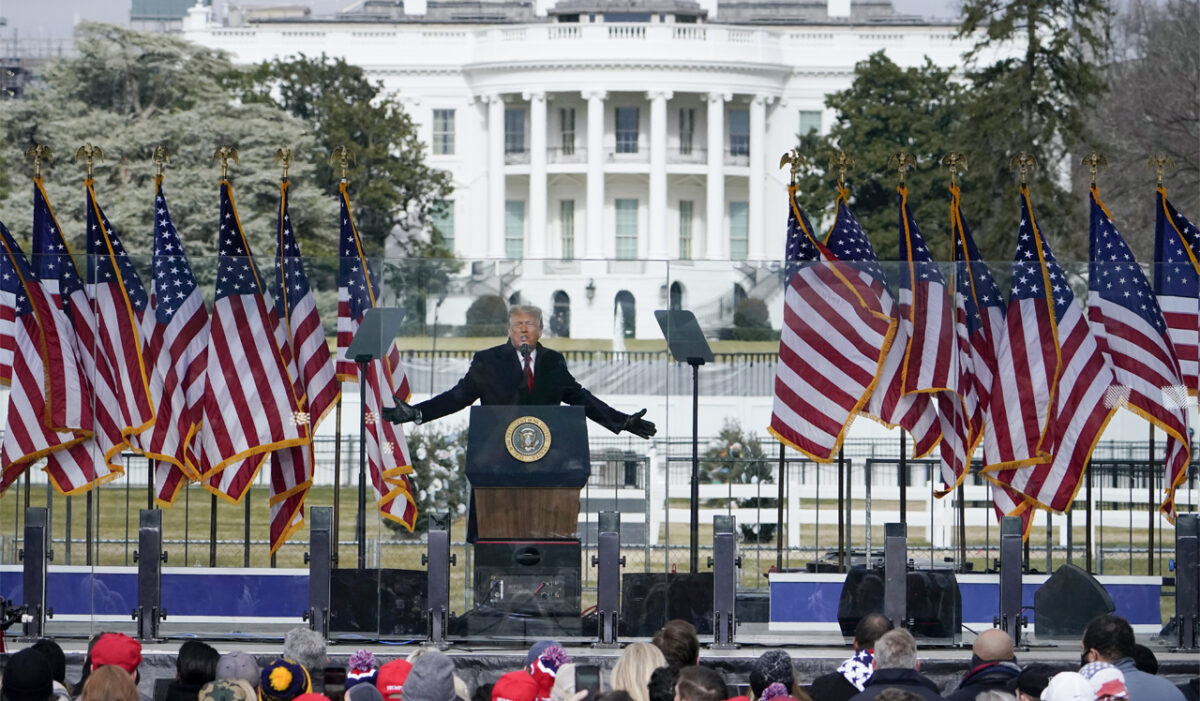
Jacquelyn Martin, AP Photo
While supporters of former president Donald Trump have accused the FBI of being politically motivated when they indicted Trump on 37 charges, The Washington Post reports that the same agency initially delayed their investigation into Trump’s role in January 6 and the attempt to steal the 2020 presidential election.
Since the indictment against Trump was unsealed, right-wing critics have lambasted the FBI, FBI Director Christopher Wray, and Attorney General Merrick Garland for exercising a “two-tiered” justice system that unfairly targeted a Republican presidential candidate. But according to the Post, the same players delayed investigating Trump for his alleged role in the January 6 insurrection and a scheme to stop President Joe Biden from being certified as the president by Congress. Post reporters Carol D. Leonnig and Aaron C. Davis write:
A wariness about appearing partisan, institutional caution, and clashes over how much evidence was sufficient to investigate the actions of Trump and those around him all contributed to the slow pace. Garland and the deputy attorney general, Lisa Monaco, charted a cautious course aimed at restoring public trust in the department while some prosecutors below them chafed, feeling top officials were shying away from looking at evidence of potential crimes by Trump and those close to him, The Post found.
When Trump announced his candidacy in November 2022, Garland appointed Special Counsel Jack Smith to investigate the former president’s role in the 2020 election scheme. But while that investigation dragged and the focus was put on the protesters and organizers who were outside the Capital on January 6, the FBI discovered “top secret” and “sensitive” documents at Trump’s home. Citing national security concerns, the raid yielded “a well-defined legal path for prosecutors, compared with the unprecedented task of building a case against Trump for trying to steal the election.”
The Post notes that the delay in investigating Trump for January 6 began before Garland was confirmed as attorney general. Michael R. Sherwin, then-acting U.S. attorney for the District of Columbia, along with “senior Justice Department officials” and Paul Abbate, Wray’s top deputy, “quashed a plan by prosecutors in the U.S. attorney’s office to directly investigate Trump associates for any links to the riot, deeming it premature, according to five individuals familiar with the decision.”
The decision to first look into Trump supporters discussing the “fake electors” scheme in the weeks leading up to January 6 was supported by Garland, Monaco, and Wray. But there was an effort by Garland specifically to correct the accusations of partisanship that arose during the FBI investigation into Russian election interference:
The Justice Department’s painstaking approach to investigating Trump can be traced to Garland’s desire to turn the page from missteps, bruising attacks and allegations of partisanship in the department’s recent investigations of both Russia’s interference in the 2016 presidential election and Hillary Clinton’s use of a private email server.
Inside Justice, however, some have complained that the attorney general’s determination to steer clear of any claims of political motive has chilled efforts to investigate the former president. “You couldn’t use the T word,” said one former Justice official briefed on prosecutors’ discussions.
When it came to the FBI, Wray also apparently did what he could to avoid the appearance of overreaching by having Washington’s local field office run the January 6 investigations. Wray, according to agents at the FBI, did not even come to the Washington field office “for more than 21 months after the attack.” In the days immediately following January 6, notable arrests were made by the FBI, such as the “QAnon Shaman” and other protestors who were photographed inside the Capital following the breach. But noticeably absent from announcing these arrest was Wray and other top FBI officials.
Beyond short written or video statements denouncing the Jan. 6 violence in general, however, neither Wray nor [Jeffrey] Rosen came out publicly to reinforce that message.
[Assistant director of the Washington field office Steven] D’Antuono, who was interacting with lawmakers and reporters, told colleagues: “Everybody keeps asking, ‘Where the hell is the FBI?’”
Jeffrey Rosen succeeded former Attorney General Bill Barr when he resigned from the Trump administration prior to January 6.
Those arrests were largely made to assure people that the FBI was taking action following a violent insurrection. It was also intended to curb another possible incident at Biden’s imminent inauguration. When asked if Trump himself would be subject to any investigation into the insurrection and his role in inciting his supporters to march on the Capitol, Sherwin said he was “not off-limits.”
But as the investigation progressed from rank-and-file protestors to more organized militias, there was discussion of an “overlooked” element of how January 6 happened:
[A] group of prosecutors led by J.P. Cooney, the head of the fraud and public corruption section at the U.S. attorney’s office, argued that the existing structure of the probe overlooked a key investigative angle. They sought to open a new front, based partly on publicly available evidence, including from social media, that linked some extremists involved in the riot to people in Trump’s orbit — including Roger Stone, Trump’s longest-serving political adviser; Ali Alexander, an organizer of the “Stop the Steal” rally that preceded the riot; and Alex Jones, the Infowars host.
Specifically, Cooney wanted to look into the connection between Stone and the Oath Keepers, who were all seen together outside the Willard hotel on the morning of January 6. When the possible connection was introduced to Sherwin and D’Antuono, they didn’t think it was enough to pursue: “Investigating Stone simply because he spent time with Oath Keepers could expose the department to accusations that it had politicized the probe, they told colleagues.”
Proposals that looked into the financial activities of Trump-friendly groups were also rejected and similar investigations “halted.” Anything that had the appearance of a politically biased “witch hunt” was stopped in its tracks by the Justice Department and the FBI.
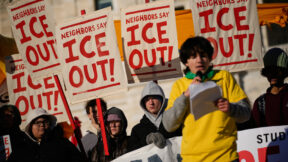
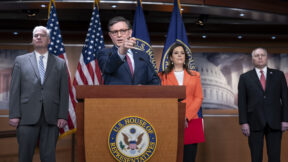
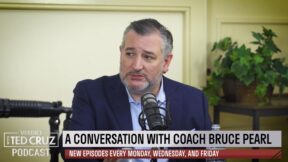
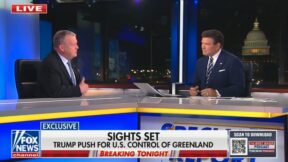
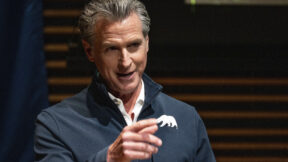
Comments
↓ Scroll down for comments ↓